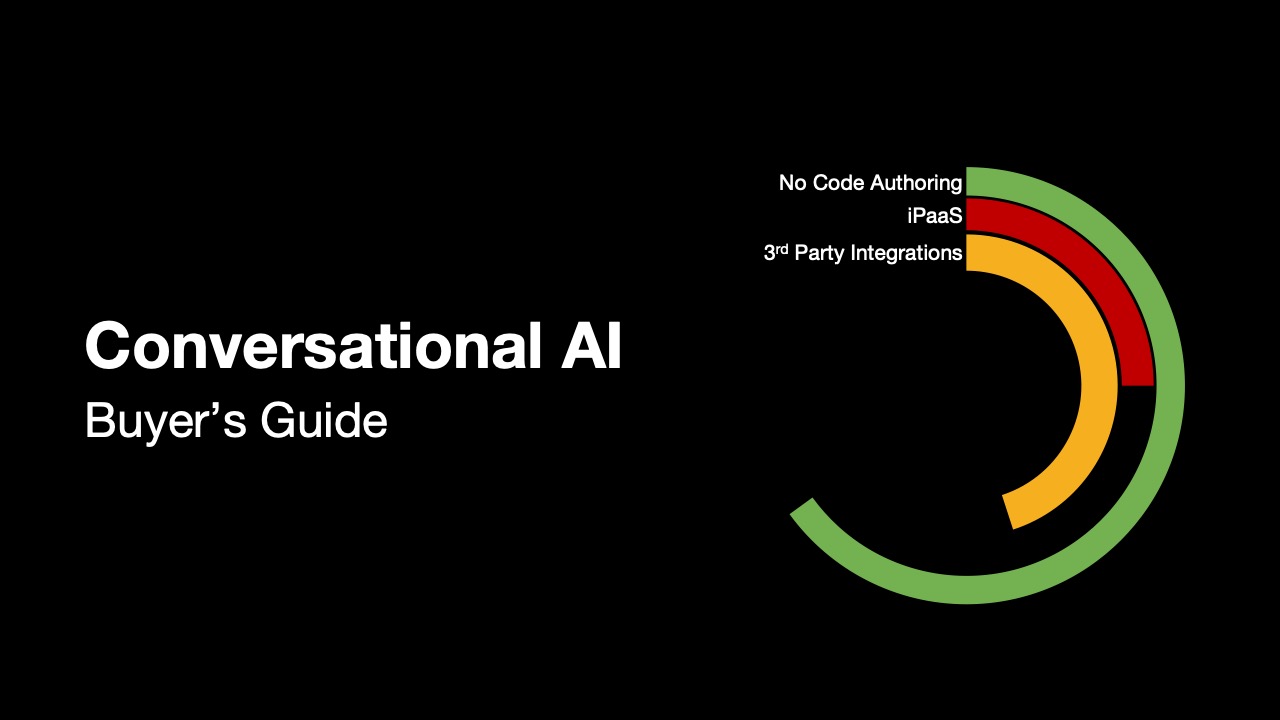Evaluating artificial intelligence (AI) products can sometimes be confusing. New AI products appear every day and are challenging to determine which products are truly powered by AI and which are veneers on top of the latest generative AI. The AI hype caused the US Federal Trade Commission (FTC) to issue a warning to software vendors to “Keep your AI claims in Check,” so they don’t overstate AI capabilities. Therefore, you need to understand the relationships among all of the different AI terms so you can make smart decisions about bringing AI into your business.
FTC Warns About Misleading AI Claims
The FTC is warning emphasizing the importance of transparency and accuracy when making claims about artificial intelligence (AI) products and services. The FTC is concerned that misleading AI claims may harm consumers and undermine trust in the technology. To avoid potential issues, companies should take care to substantiate AI claims, disclose the technology’s limitations, and protect user privacy.
- Companies must have a reasonable basis for their AI-related claims, including claims about performance, data privacy, and data security. They should be able to substantiate their claims with reliable and relevant evidence.
- The FTC emphasizes the importance of transparency in AI decision-making processes. Companies should clearly explain to consumers how decisions affecting them are made, what data is used, and what factors are considered.
- Companies should consider external validation to bolster the credibility of their AI claims. This might include certifications, third-party testing, or expert evaluations.
- Software companies should avoid making overly broad or unsupported claims about AI in products and services.
How to Know When Products Actually Use AI
Determining how a product or service uses AI begins with understanding and differentiation among AI terms. If you don’t understand the capabilities, the inputs, the outputs, the training data, and what they mean, then how are you going to make informed decisions?
We will help you evaluate AI products and arm you with questions you can ask AI vendors to make sure what they are delivering is really AI and not hard-coded logic.
What do all of the AI terms mean?
Many people are uncertain about the meaning of terms like artificial intelligence, machine learning (ML), and natural language generation (NLG). It can be difficult to know what products or services are really powered by AI and which ones are using other technologies. To help understand more about these technologies, it is important to define each term and learn how each is applied inside of AI products you are evaluating.
What is Artificial Intelligence (AI)?
Artificial intelligence is the capability of a computer system to mimic human cognitive functions such as learning and problem-solving. Through AI, a computer system uses math and logic to simulate the reasoning that people use to learn from new information and make decisions.
What is Machine Learning (ML)?
Machine learning is an application of AI. It’s the process of using mathematical models of data to help a computer learn without direct instruction. This enables a computer system to continue learning and improving on its own, based on experience.
What is Natural Language Processing (NLP)?
Natural language processing, which evolved from computational linguistics, uses methods from various disciplines, such as computer science, artificial intelligence, linguistics, and data science, to enable computers to understand human language in both written and verbal forms.
NLP seeks to convert unstructured language data into a structured data format to enable machines to understand speech and text and formulate relevant, contextual responses. Its subtopics include natural language processing and natural language generation.
What is Natural Language Understanding (NLU)?
Natural language understanding is a subset of natural language processing, which uses syntactic and semantic analysis of text and speech to determine the meaning of a sentence.
NLU focuses on machine reading comprehension through grammar and context, enabling it to determine the intended meaning of a sentence.
What is Natural Language Generation (NLG)?
Natural language generation is another subset of natural language processing. While natural language understanding focuses on computer reading comprehension, natural language generation enables computers to write.
Natural language generation focuses on text generation, or the construction of text in English or other languages, by a machine and based on a given dataset.
Questions to ask vendors about AI in their products
When evaluating AI products, it’s essential to ask the right questions about how the technology is applied. Asking vendors specific questions about their AI implementation will help you identify whether their product truly utilizes artificial intelligence or just hard-coded logic. I provided a list of useful questions to help you evaluate a vendor’s claims to ensure there is AI in the product. When asking vendors about their AI products, seek answers that provide evidence such as detailed explanations of algorithms used or user stories that demonstrate how the technology is being applied and what data was used in training the models. Asking these questions will help you gain a better understanding of the product and its capabilities. Investing in an AI product requires careful consideration and asking the right questions is a key part of that process. You want to make sure your investment will yield a positive return and provide value for your organization.
What type of machine learning are you performing?
When assessing AI in a product, it is important to ask the vendor about the type of machine learning they are performing. Questions should focus on data predictors, anomalies, categorization, and classifications. These are all essential components for any successful AI algorithm. Ask vendors what specific types of algorithms they employ for their artificial intelligence product and how they are applied. Also, ask for a detailed explanation of the data that is used in training their machine learning models and what techniques were used to extract useful insights from it. Understand how their AI solution can be beneficial to your company and its operations. This will help you make an informed decision when investing in their product.
How are you using NLP?
Asking vendors about the NLP used in their products is equally important. If they are claiming to utilize NLP, ask them if they can detect sentiment and intent from text or speech. This type of analysis requires machine learning models that are specifically trained on large datasets with labeled examples of text and sentiment. Additionally, ask if the AI can initiate the next action based on the sentiment or intent detected. This requires a more advanced understanding of language since it is necessary to comprehend what the user wants and then initiate more automation. Initiating more automation from user inputs helps your organization move more work from your people to software. Doing so adds speed and efficiency to your business so you can increase outputs with the same or less work.
How are you using generative AI and NLG?
Generative AI and natural language generation (NLG) are two important aspects of AI that enable machines to generate text from a given dataset. When asking vendors about their NLG implementations, ask them how the NLG is trained, what type of training data is used, and if you can add your own training data. Understanding the data used to train the NLG is key since it will determine how accurate and useful the generated results are. Additionally, ask if the NLG can produce different texts when given multiple datasets. This requires a highly sophisticated form of AI that can comprehend multiple data sources and generate relevant insights from it. Lastly, inquire about the ability to customize and control generated texts according to your specific needs. This will help you ensure that the NLG is meeting the standards of accuracy and relevance set by your organization.
Asking intelligent questions about AI
Investing in an AI product requires careful consideration and asking the right questions is a key part of that process. Asking vendors about their AI products and specific components such as machine learning, NLP, generative AI, and NLG will help you gain a better understanding of the product and its capabilities. Understanding the data used to train the AI models and the ability to customize generated texts will also help you make an informed decision when investing in a product. Doing your due diligence is essential to ensure that your investment yields positive returns for your organization.
—
Links and Resources
Speakers
Transcription
Scott King: Hello everyone, I’m Scott King, and with me is Chris Kraus. Today, we’re discussing what AI really is and how to effectively evaluate AI products. We’ll provide you with questions to ask vendors, integrators, and anyone claiming to have AI. This is based on a recent FTC article that emphasizes the importance of truthful marketing claims and evidence-backed statements in the AI market.
Chris Kraus: Absolutely.
Scott King: The FTC wants companies to have a reasonable basis for their AI-related claims. This means that claims must be truthful, and there should be data privacy and security. Companies need to substantiate their claims and maintain transparency in AI decision-making, such as addressing bias and considering the data used. External validation, like third-party testing or peer reviews, can bolster credibility. Additionally, businesses should avoid making overly broad or unsupported claims. Chris and I have been marketing software for a while now, and we’ve seen it all.
Chris Kraus: Indeed, we have.
Scott King: Let’s discuss some definitions and provide a baseline understanding of AI.
Chris Kraus: Having a basic understanding of these terms can help you become a more informed buyer. It’s essential to ask vendors questions and determine if their product truly includes AI or ML or if they’re just “AI-washing.”
Scott King: So, Chris, when you hear AI, what does that acronym mean to you?
Chris Kraus: AI stands for artificial intelligence. A good definition from Azure is, “Artificial intelligence is the capability of a computer system to mimic human cognitive functions, such as learning and problem-solving.” AI involves computer systems using math and logic to simulate reasoning, learn from new information, and make decisions.
Scott King: Makes sense. Another term often used is ML. Are AI and ML the same thing? What does ML mean to you?
Chris Kraus: ML stands for machine learning. It’s a subset of AI that involves computers learning and improving from experience without being explicitly programmed. While AI refers to the broader concept of machines being able to carry out tasks in a way that we would consider “smart,” ML is a specific application of AI that focuses on the development of computer programs that can access data and use it to learn for themselves.
Chris Kraus: In this case, machine learning is the application of AI. It’s a process of using mathematical models of data to help computers learn without direct instruction. This enables computer systems to learn and improve on their own based on experience. Machine learning continuously learns as data changes. It’s basically a lot of math, and it’s the math of how we perform artificial intelligence.
Scott King: Okay, makes sense. So it learns by itself.
Chris Kraus: Now, there are tons of math algorithms, chat GPT, generative AI, classical predictors, and forecasting engines. When you hear NLP, Scott, what does NLP sound like to you?
Scott King: I know this one because I follow English football. So NLP is a football academy
Chris Kraus: Of course, but it’s actually natural language processing. There are categories of machine learning, and probably the most common one is natural language processing. It’s about taking unstructured language and breaking it down into parts that a computer software can act upon.
If natural language processing is here, there’s also NLU and NLG. NLU is natural language understanding. It’s a subset of natural language processing, which uses syntax and semantic analysis of text to determine the meaning of a sentence. There’s a lot of learning models to figure out how to do that.
Scott King: The only thing I can think of is a crisp right now.
Chris Kraus: Or I need to go up the lift because I need to lift myself to the second story of my apartment.
Scott King: Lift makes sense to me. I totally understand why they call it that. So NLU is underneath NLP, right? So in order to process it, I have to first understand it.
Chris Kraus: Yeah, now the NLG is probably the one that everybody’s talking about. They just don’t know that’s what it’s called. So Scott, what is NLG?
Scott King: Is it National Leisure and Gaming?
Chris Kraus: In some countries, but in this context, we’re talking about natural language processing. In the context of this conversation, NLG is natural language generation. It is actually a subset of NLP. So you’ve got NLP, and then you’ve got NLU and NLG. NLU is understanding what someone wrote. NLG, on the other hand, focuses on generating text. It’s what makes a computer write. This is why a lot of people are playing with ChatGPT – you can give it data and it will write you a paragraph or an essay. It parses the information, plans and writes sentences, and then proofreads for grammar and punctuation, checking tenses as well.
Scott King: You talked about ChatGPT, and a lot of the chatter I see is about the prompts. So if I can make the generative AI understand me better and understand with greater context and greater detail and more constraints around the answer that I want, it can generate a better answer for me.
Chris Kraus: Right, so it won’t mess up things like whether a story is a noun or an adjective.
Scott King: Yeah, or a story is a street here in Dallas, too. So that’s kind of a deep dive into those. And inquisitively, when you get into AI, there’s a lot of AI out there. But I wanted to kind of explain those, because that’s what people are really, I think there’s going to be a lot of whitewashing on that.
Chris Kraus: There are certain things that are AI that have been around for a really long time, and people forget about them. Like speech to text, text to speech, and OCR. These things have been around for a very long time. The NLP and NLU concepts have been there, but the technology has gotten much better and faster recently. We’ve also seen this with image recognition. There’s a whole bunch of other ML models out there, and the trick is those are sometimes hard to distinguish.
Scott King: So Chris, on your predictors and the things that you just went through, so if I want to find that in a product that I’m evaluating, what question do I ask? How do I find out what type of machine learning they have in their product?
Chris Kraus: You can ask them, “What algorithms or what math do you use for your predictors, your categorizations, your anomalies?” And then the other thing is like, well, are they actual well-known algorithms? Also, ask about the continuous training to learn and provide different answers.
Scott King: Okay, so that’s on the machine learning side and we were talking about NLP and NLG earlier. If they claim to have NLP, how do we help people understand that they actually have NLP in their product, or do they just have a bunch of people in the back office scripting the conversations?
Chris Kraus: The trick is to see if they’re applying natural language understanding to something. Are they understanding the sentiment of the user? What’s the intent of the email? Are they applying understanding to identify a problem and solve it, or are they providing information back through natural language generation? The idea is to see if they’re applying that and if they get smarter over time because they have more examples of emails to read and understand the intent.
Scott King: That seems like a big issue because even if you understand a little bit and you understand a great bit, that’s a huge differentiator, right? There’s enormous value in there.
Chris Kraus: You could say, what’s the status of my order 123? You don’t need natural language processing to do that. You could just use a regular expression and say, give me the number in the sentence and then look it up in a back-end system and reply back. That’s not natural language processing understanding. If you ask the questions five different ways, did it still figure out the intent and associate the data with it correctly?
Scott King: Most of the chatter is on the generation side, like content generation, writing emails, writing responses back to customers, conversation bots on websites. If someone claims to have generative AI in their product and especially if they say they’re just gonna put GPT in there, what do I ask them to make sure that there’s actually generative AI in the product versus just some list of hard-coded answers?
Chris Kraus: If they have you build forms and then plug in information like the customer name, that’s not natural language generation. Natural language generation would read information like the customer’s name, address, account information, and whether they’re displeased with customer service, and then generate a response based on that. If they’re using form fills or if-then-else logic like in an Excel spreadsheet, they’re not really using natural language generation.
Scott King:: So the idea is to ask smart questions to get smart answers. This will help everyone evaluate different AI products and bring AI into their enterprise. Thanks, Chris.






